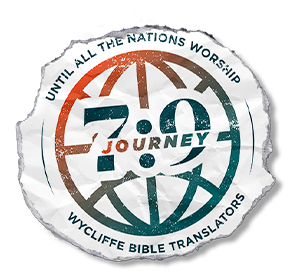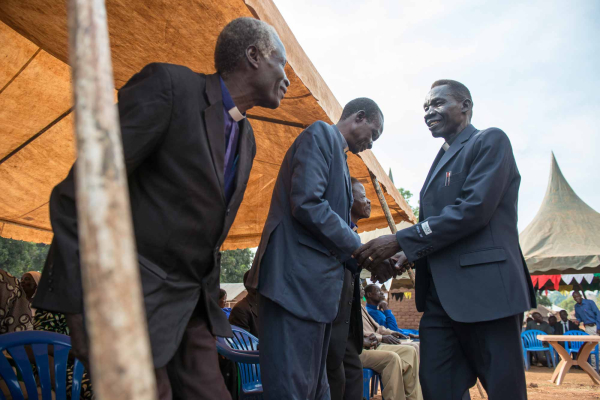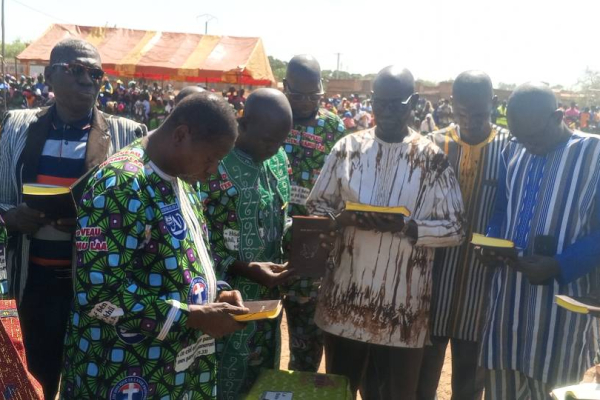7 Feasts That Point to Christ
Discover the clues that God left for the Israelites and for people today to find His Son!
As a child, the whitewashed walls of a doctor’s waiting room often signaled one thing — reaching for the “Where’s Waldo?” book. While magazines like Home and Garden or People sat untouched, many children eagerly sifted through the pages, searching for Waldo hidden within the chaos of a crowded scene.
Sorting through prophecies and symbolisms of the Old Testament can feel similar, like an intricate game of “Where’s Jesus?”
Jesus often pointed to the “beginning” (Genesis), the Law of Moses (first five books) and the prophets (Jeremiah through Malachi) to reveal God’s plan for mankind and clues to recognize the Savior.
For the Jews of His time, understanding the Old Testament was key to discovering that Jesus is their promised Messiah.
And if you have heard the Good News from the New Testament and received Jesus as your Savior, Old Testament prophecies and symbolism provide further proof and assurance that Jesus is the Christ, the Son of the living God. These revelations are being brought to light for millions through the ongoing work of translating the Bible into all languages that need it.
1. Passover — Leviticus 23:4-8
This feast remembers the last plague in Egypt, when the angel of death “passed over” the children of Israel who applied the blood of the lamb to their doors. The Israelites took a bundle of hyssop and dipped it into the blood in the basin at the threshold.
Going up, they put it up on the lintel, then touched the two sides of the frame (Exodus 12). Can you see the imagery? Bottom to top, side to side: the motion formed a cross.
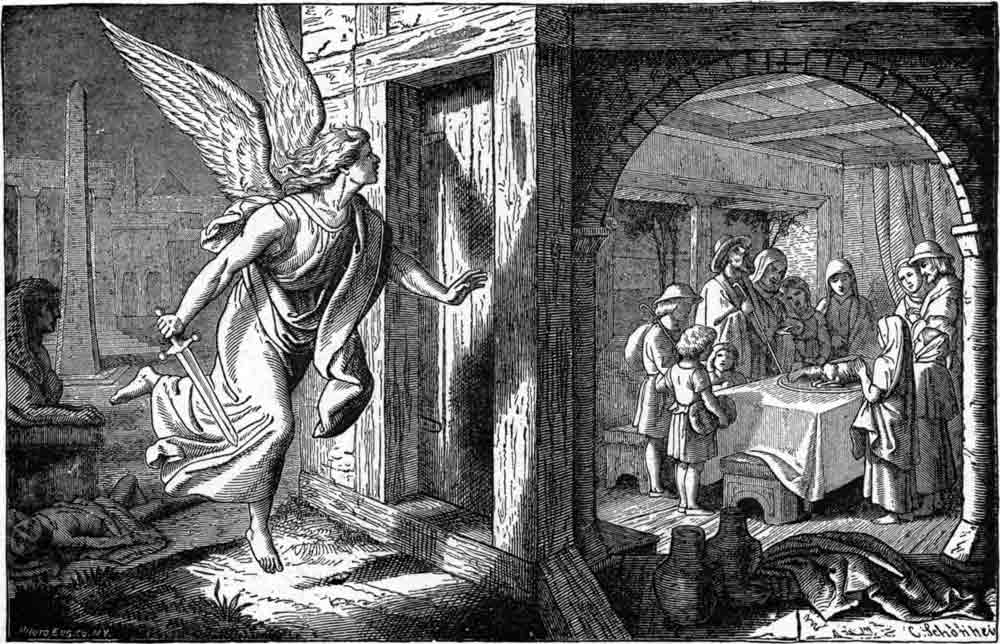
When John the Baptist said, “Look! The Lamb of God who takes away the sin of the world!” (John 1:29, NLT), he understood the Old Testament reference.
And in the New Testament we see that Jesus — born in a stable, visited by shepherds and led to the slaughter — is that Lamb sent for us. His death allows the judgment we deserve to pass over us.
Freedom Through the Lamb of God
Akpaki, a member of the Kwi Cluster community in Togo, shared how Scripture in her own language transformed her life:
Just as the Israelites were saved by the blood of the lamb, Akpaki’s life has been redeemed by Jesus’ sacrifice. Through Bible translation, the Good News of Jesus’ death and resurrection is softening hearts, restoring relationships and offering a clean slate to people around the world.
2. Unleavened Bread — Leviticus 23:6
This seven-day feast begins on the day following the start of Passover. In the haste of the Israelites to leave Egypt, there was no time to add leaven (yeast) to their bread.
During this time, remembering the hardships in Egypt and how God freed them from captivity, the Jews eat nothing leavened.
Leaven often represents sin and decay in the Bible. Once incorporated, yeast becomes an inseparable part of the bread; the same is true for sin’s effect on our lives.
The Jews were constantly sacrificing unblemished animals to temporarily atone for sin. Only the Messiah, the perfect sinless sacrifice, could offer a permanent solution.
In John 6:35, Jesus boldly states that He is the Bread of Life. Not only does He remove our sins, He nourishes our souls!
The Gospel Comes Alive
A translator in Cameroon reflected on this truth in a deeply personal way after watching a film about the Gospel of Luke in his own language. Though he had been to Bible school, preached sermons and even worked on translation projects, something profound happened when he heard Jesus speak his language and saw Him portrayed on screen. He shared:
The man continued: “I heard Him say in the film, ‘Father, forgive them, for they know not what they do.’ It was at that moment, I truly understood what Jesus went through. If this can impact someone like me, who has preached on these passages for so many years and translated, how much more will this speak to other people who haven’t heard it before?”
That is the life-changing power of Jesus, the Bread of Life. Just as unleavened bread reminds us of Christ’s sinless sacrifice, hearing and seeing His story in your own language allows the truth of His forgiveness and provision to deeply nourish and transform your heart.
3. Firstfruits — Leviticus 23:10
The Feast of Firstfruits is one of three Jewish harvest feasts to thank and honor God for all He provided. Although they didn’t know it at the time, the children of Israel were celebrating what would become a very important day.

The priests sacrificed Passover lambs on the 14th day of the month of Nisan, and the first day of Passover was the 15th. The Feast of Firstfruits was celebrated on the third day, the 16th of Nisan. This “third day” celebration was the same day that Jesus resurrected from the dead.
In 1 Corinthians 15:20 Paul refers to Jesus as the firstfruits of the dead. He represents the first of the great harvest of souls — including you — that will resurrect to eternal life because of the new covenant in His blood (Luke 22:20).
Eternal Abundance
For the Keliko people of South Sudan, receiving the New Testament in their language was not just a milestone — it was a moment to give thanks to God for the eternal life His Word offers. During the dedication, Bishop Seme Nigo Abiuda declared:
The Keliko people overcame many obstacles to complete their translation project — trials, loss, displacement. Having Scripture in their language is cause for celebration! Bishop Seme proclaimed:
Just as the Feast of Firstfruits celebrates God’s provision and the resurrection of Jesus, the Keliko people celebrated His miraculous work in bringing them His Word. Bible translation allows communities like the Keliko to lift their voices in praise to the one who provides eternal life through His Word.
4. Feast of Weeks or Pentecost — Leviticus 23:16
This feast is the second of the three harvest feasts. It occurs exactly seven weeks after the Feast of Firstfruits, so it’s also called Pentecost which means “50 days.”
Traditionally, people were expected to bring the first harvest of grain to the Lord including two leavened loaves of bread.

God’s plan to save souls included more than the Jews. Through Jesus, this plan was revealed. In Matthew 9:37 Jesus tells His disciples that “the harvest is great, but the workers are few.”
Then He put the plan into place: In Acts 1:4 He tells them to wait in Jerusalem for the Holy Spirit.
Today, Bible translation continues this harvest, enabling more people to read, speak or sign to clearly understand the gospel message in a language that touches their hearts.
United Through the Word
The Siwu-speaking communities in Ghana experienced God in a profound way: through Scripture in their language. For years, Siwu was seen as secondary, and many believed God only understood English or Ewe. But with the completion of the Siwu New Testament, they came to know a deeper truth:
A translator shared: “When we are doing Bible studies in Siwu, even the old ladies are making contributions because they understand what you are saying and ask questions. … I’ve also seen that formerly people thought they could only pray in Ewe. But no, we taught them, ‘God understands Siwu.’
Pentecost reminds us of God’s plan to reach every person and nation. Today through Bible translation, He is continuing to fulfill that promise, transforming lives and uniting His people through His Word.
5. Feast of Trumpets — Leviticus 23:24
In a beautiful declaration God commands His people to rest. During this time all regular work is prohibited, and men and women present a food offering to God.
On the same front, the sound of a trumpet is also associated with the rapture, or the time Jesus will return for His bride (1 Corinthians 15:52). Once He returns, there will be a wedding feast of celebration. Revelation 19:9 says, “Blessed are those who are invited to the wedding feast of the Lamb” (NLT). He’s preparing us to celebrate!
Joyful Praise in Every Language
“For years, we have prayed for this day,” exclaimed Aziz*, a believer in Eurasia, during a historic gathering to celebrate the publication of the Bible in his language.
For three days, joyful Christians sang, clapped and danced in worship. Among them was a judge who had once opposed Christianity. After encountering Scripture, his heart was opened by the Holy Spirit, and he was drawn to Jesus. Now this former opponent stood in the courtyard, worshipping God alongside those he once resisted.
This scene of celebration reflects the promise of Revelation 19:9 — the ultimate wedding feast of the Lamb.
*Name changed.
6. Day of Atonement — Leviticus 16, 23:26-32
To make “atonement” is to make restitution for wrongs committed. As a day of humility and repentance to God, it was a time for the Jews to get their hearts, consciences and lives right before Him.
The observance involved the sacrifice of animals as the high priest entered the Holy of Holies. What the high priest did there couldn’t offer more than an annual payment for their sins.
However, hiding in plain sight was the promise of One who could atone for their sins permanently (Hebrews 9:12).

Where is Jesus in these sacrificed animals? The bull and one of the goats were an offering of thanks, but the “scapegoat” took on their sins (Leviticus 16:10). The scapegoat was to be burdened with all the sins of Israel and sent into the wilderness.
The necessity of the Day of Atonement was rendered void by Jesus’ death on the cross — our debt has been paid! Yet for this life-changing truth to truly resonate, people must understand it in a language that touches their heart.
The Power of Hearing God’s Word in Your Language
Leonard Bolioki witnessed just how powerful translated Scripture can be. During a Good Friday service, he read the story of Jesus’ crucifixion to his congregation in his own language, Yambetta, for the first time. Previously, the story had always been read in French, but this time the response was entirely different.
The congregation was stilled by the words, and as Leonard read, some of the older women began to weep. After the service, they approached him with astonishment.
“We have never heard anything like it before!” they said. “We didn’t know there was someone who loved us so much that He was willing to suffer and die like that — to be crucified on a cross to save us!”
Leonard showed them the story in his French New Testament and explained that it was the same story they had heard every year during Holy Week. But the women insisted they had never truly understood it until now.
This moment deeply motivated Leonard to continue translating Scripture into Yambetta. He wanted his people to know that Jesus bore their sins and made a way for them to have a restored relationship with God.
The story of Jesus’ sacrifice is the greatest message of hope the world has ever known. And through Bible translation, that hope is reaching people’s hearts and moving them.
7. Feast of Tabernacles or Booths — Leviticus 23:34
Celebration always follows the Day of Atonement. The Feast of Tabernacles celebrates God’s provision and protection for the people of Israel during their 40 years of wandering in the wilderness. For seven days, people live in temporary structures, just as the Israelites did in the wilderness.
The Lord Himself was with the Israelites in the desert, in a tented temple called the Tabernacle, so the feast also celebrates His presence as He tabernacles (dwells) with us.

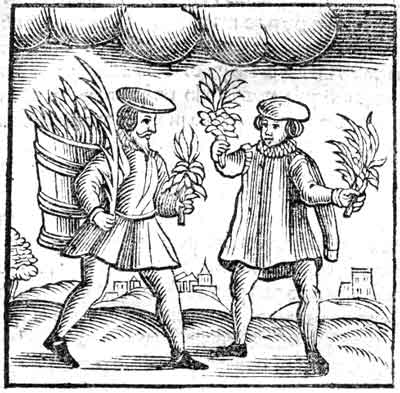
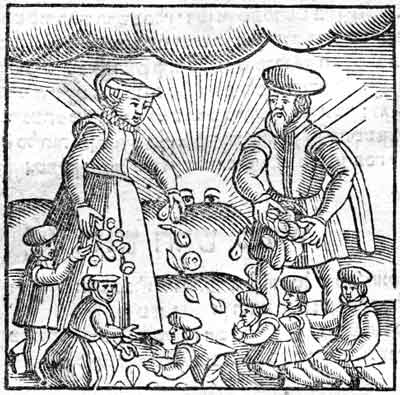
Revelation 7:9 paints a beautiful picture of this truth: “After this I saw a vast crowd, too great to count, from every nation and tribe and people and language, standing in front of the throne and before the Lamb.” This verse highlights the inclusivity of God’s Kingdom — people from every corner of the world united in worshipping Jesus.
This feast also points to the promise of Jesus’ return, when God will rally with His people. On that day, there will be no more death or suffering, and He will wipe every tear from our eyes (Revelation 21:4). What a day of joy and celebration that will be!
Having God’s Word is Having His Very Presence
When Marianna Slocum and Florence Gerdel completed the Highland Tzeltal New Testament in 1956, they saw firsthand the transformative power of Scripture. One believer prayed, “Lord, it isn’t enough that now in our hands we have Your Word written in our own language. Write it in our hearts, Lord, and let it be seen in what we do and say each day that we believe in You and that we obey Your commands.”
But their work didn’t end there. The two women later moved to Colombia, where they began translating the Bible for the Páez people. When the first 100 copies of the New Testament arrived, members of the community were deeply moved. One believer prayed:
This powerful statement reflects the heart of the Feast of Tabernacles — the joy of experiencing God’s presence. Through Bible translation, people like the Páez are encountering the living God in ways that transform their lives and draw them closer to Him.
Revealing God’s Plan Through Scripture and Translation
Unlike searching for Waldo in a messy world, we can pray for God’s wisdom as we read His Word. Even with this small glimpse into these feasts, we see His intentional love for humanity has endured centuries, and He has left us clues that foreshadow the beauty that is to come.
The Old Testament has many hidden truths that, in light of the New Testament, bring a richer understanding to your life in Jesus Christ.
Through the efforts of Bible translation, our goal is to make these profound truths accessible to all people everywhere, allowing them to discover the richness of God’s Word and recognize His plan for salvation through Jesus Christ.
Journey With Us
Are you new to Wycliffe? Hop aboard Journey 7:9! We want to see people from every nation and language able to worship before God’s throne (Revelation 7:9). Travel with us to see how Bible translation is making that happen: no passport needed!
Explore the Journey

